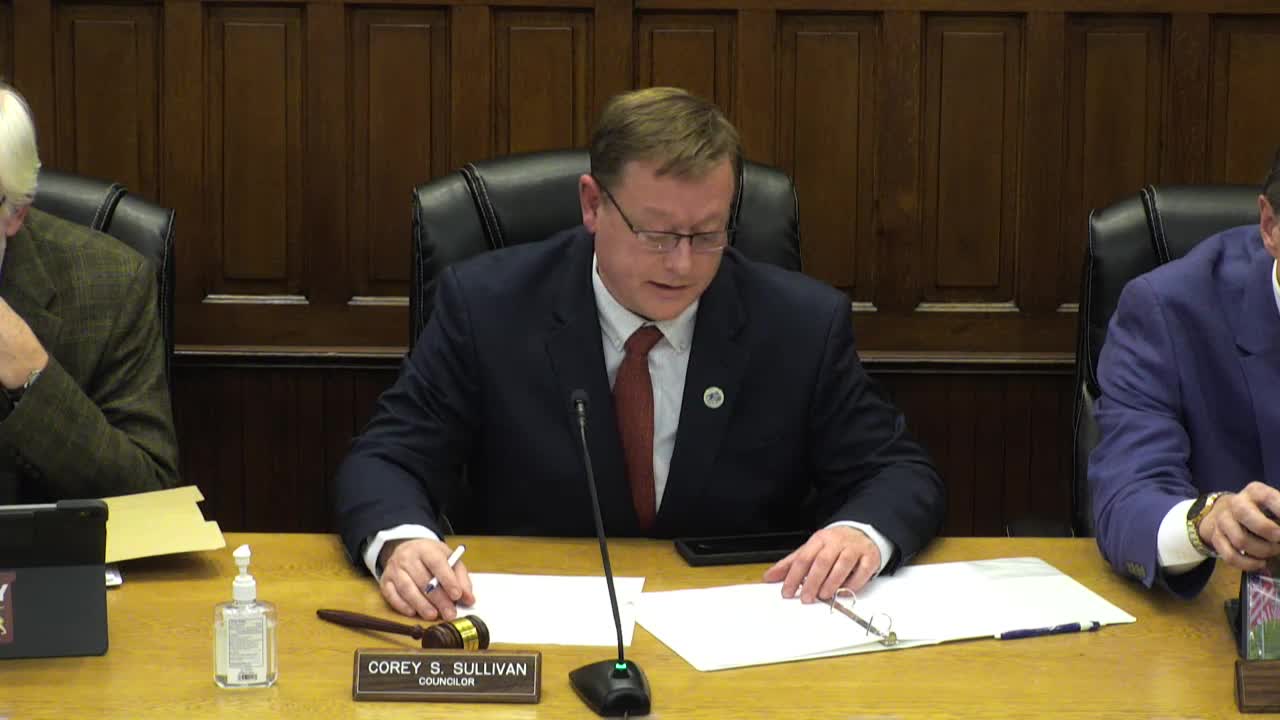Winchester council tables proposed limits on public comment after sustained opposition
Get AI-powered insights, summaries, and transcripts
Subscribe
Summary
The Winchester City Common Council on Jan. 14 paused action on a proposed policy that would limit public-comment time and restrict signage after extended public testimony and objections from residents and several council members.
The Winchester City Common Council on Jan. 14 voted to table a resolution that would set new limits on public comment and public-hearing procedures after several hours of public comment and objections from council members.
City attorney Melissa Michaelson opened the council discussion by framing the proposal as an effort to put written rules in place. "I just think that it's important to have some set of rules to establish, you know, how public comment and public hearings will be conducted," Michaelson said, adding the written policy was intended to protect the First Amendment by making expectations public.
Dozens of residents used the public-comment period to oppose the proposal, R-2024-40. Several speakers said the changes—most notably a proposed 90-second limit per speaker and a 30-minute total cap—would curtail public participation. "Limiting of public of the people's right to speak during public comments is nothing short of undemocratic," said Rodrigo Etaeta Leon, a Winchester resident. Other speakers presented data and petitions: Maribeth Stoller Watkins said she compiled meeting-length data showing the average public comment period in 2024 was about 16 minutes; Cleo Strauakis said she submitted a petition with about 230 signatures opposing the measure.
Speakers urged restoring the council's existing practice of three minutes per speaker and expressed concern that applause, shouting or other audience reactions could intimidate would‑be speakers. "I had a resident come to me and say, I would have liked to have spoken and opposed what was being said, but I was too scared," Councilor Tagnisi later recounted when discussing the need for decorum.
After discussion among council members, Councilor Richard Bell proposed amendments—raising individual speaking time back to three minutes and raising the total public-comment cap from 30 minutes to one hour—and asked that the policy be reworked. The motion to table the resolution and return a revised draft at the council's Jan. 28 meeting carried. Mayor Mitch Beach seconded the motion to table.
Council members and staff said the delay would allow the administration to produce revised language that reflects council direction, including clarifying differences between public hearings (where additional time and visual aids may be appropriate) and the public-comment period (intended by the council to be a one-way opportunity for residents to address the body). Michaelson said she would bring a revised draft back for council consideration.
The council took no final vote on the policy at the Jan. 14 meeting. The matter is scheduled for return at the Jan. 28 meeting, when councilors said they expect to consider the edits requested at this session.
